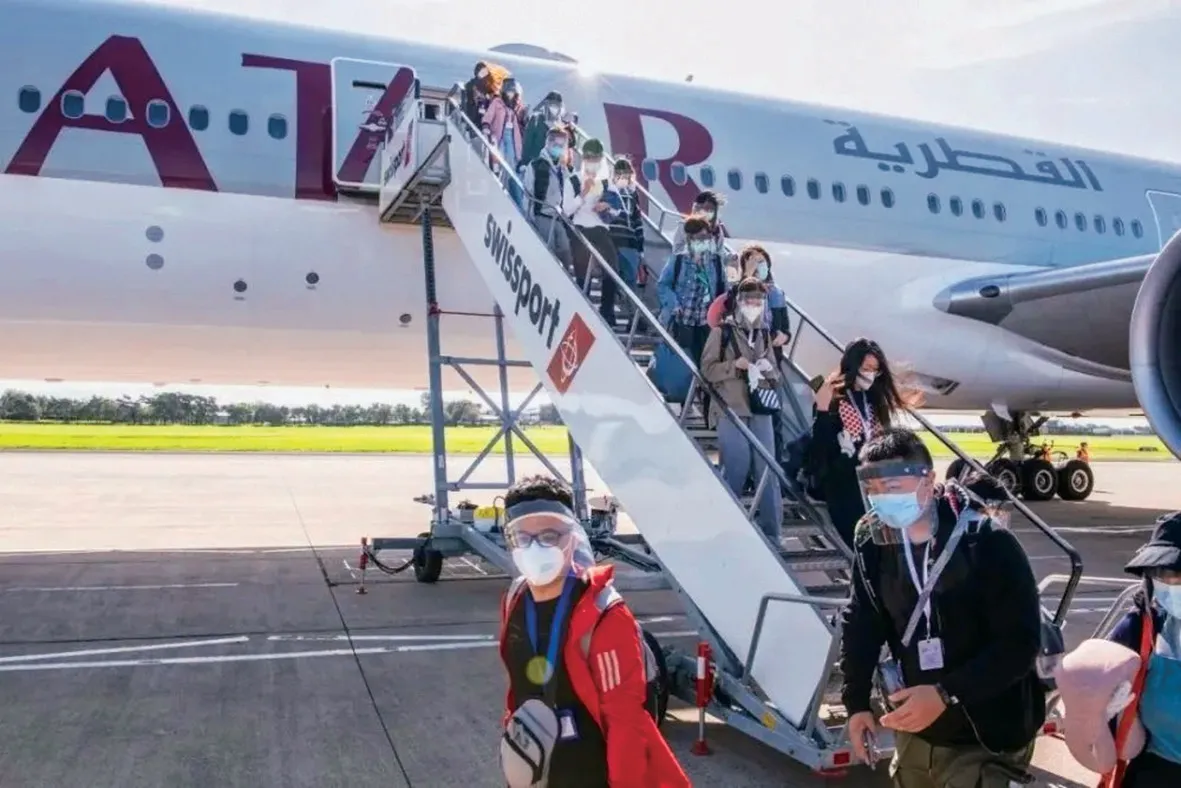疫情下,中国留学生如何返校?
2020-11-26中国日报网
文/中国日报网
9月19日,369名中国学生从中国乘坐贝尔法斯特女王大学的包机前往英国,之后开始了他们在该大学的自我隔离生活。
一位将女儿从北京送走的母亲说,她非常感谢这次包机。她说:“女儿拿到学生签证时,我们很担心,因为疫情让国际旅行变得困难和危险。然后我们听说贝尔法斯特女王大学会安排包机。我们很高兴,票价也很合理。”
英国高等教育统计局的数据显示,2019年,在英国高校留学的中国学生人数首次超过12万,占非欧盟学生总数的1/3以上。中国政府的数据显示,目前在英国留学的中国学生总数已超过22万。据英国广播公司报道,包括学费和住宿费等其他消费在内,这些留学生每年为英国经济的贡献达到40亿英镑(约合人民币348亿元)。

乘坐包机前往英国复学的中国留学生
报道中还提到,自新冠肺炎疫情暴发以来,英国大学一直担心,如果中国学生因担心英国的新冠肺炎高感染率和死亡人数而在秋季新学年退学,会造成重大经济损失。根据曼彻斯特大学的预测,退学率可能在12%到61%之间,而对去英国旅行是否安全的“焦虑”超过了其他担忧。
贝尔法斯特女王大学副校长格里尔在欢迎致辞中说:“为了缓解新学年旅行带来的焦虑和压力,贝尔法斯特女王大学是英国首批安排包机将学生直接送到贝尔法斯特的大学之一。”包机的单程票价为616英镑。学生们需在起飞前48小时内进行新冠病毒检测,并在登机时提供阴性结果。飞机着陆后,直接将他们从机场送往学校,学校将提供隔离住宿。据悉,英国已有20多所高校联合包机接中国留学生返英。英国早些时候宣布,将给予中国学生与欧盟学生相同的签证待遇。
据多家媒体报道,有关方面正在讨论让更多英国大学包机从中国、印度和非洲接回留学生,以鼓励国际学生在本学年返英就读。
很多海外高校正在为数以千计的中国留学生提供返校包机航班,也有学校表示可以退还学费。
中国教育部表示,对在国内高校完成的部分海外高校学位课程予以承认。允许高校“在确保教育公平的前提下”,接收出国留学生先行在国内高校借读学习。
澳大利亚国际教育协会首席执行官菲尔·霍尼伍德说,该国面临着在下学年第一学期失去大量国际学生的“真正危险”。澳大利亚内政部公布的数据显示,在截至今年6月的一年中,与上年同期相比,来自印度的赴澳留学申请减少了46%,来自尼泊尔的申请减少了60%,来自中国的申请减少了20%。
澳大利亚全国高等教育联盟估计,为了应对新冠肺炎疫情危机,目前大学已经削减了超过1.1万个工作岗位,而澳大利亚大学联盟预测,到明年年初,可能会裁减多达2.1万个全职职位。
Three hundred and sixty nine Chinese students started their self-quarantine life in the campus of Queen’s University Belfast,or QUB, after traveling from China to the United Kingdom by a flight chartered by the university on September 19th.
A mother who sent her daughter off from Beijing said she was“very grateful” for the charter flight. She said: “We were worried when my child got the student visa because the pandemic makes international travel difficult and risky. Then we heard the news that QUB will arrange a charter flight. We were so happy.And the ticket price is fair enough.”
According to the Higher Education Statistics Agency of UK, last year the number of students from China studying in UK higher education surpassed 120,000 for the first time, accounting for more than one in every three non-European Union students.The total number of Chinese students studying in the UK is now more than 220,000, Chinese government figures show. These students contribute 4 billion pounds to the UK’s economy per year in tuition fees and other spending such as accommodation,a BBC report said.
The report also said since the pandemic began, UK universities have been worried about major financial losses if Chinese students withdraw from their courses in the new academic year in the fall, amid concern over high COVID-19 infection rates and a high death toll in the UK. According to a forecast by the University of Manchester, cancellations can range from 12 percent to 61 percent, and “anxiety” over whether it is safe to travel to the UK outweighs other concerns.
“To alleviate anxiety and stress about traveling for the new academic year, Queen’s was one of the first universities in the UK to put together a direct charter flight to bring our students directly to Belfast.” vice-chancellor Greer said in his welcome message.A one-way ticket for the QUB charter flight was 616 pounds.Students were required to take COVID-19 tests 48 hours before departure and needed to provide negative results to board the plane. After landing, they were transported directly from the airport to their campus and provided with quarantine accommodation. More than 20 universities in the United Kingdom have joined together to charter flights for Chinese students to Britain.
Discussions are believed to be ongoing for more British universities to charter flights from China, India and Africa to encourage international students to return in this academic year,several media outlets have reported.
Many universities overseas are chartering flights for thousands of Chinese international students to return to their studies,other are offcring studerts refund.
China’s Ministry of Education has also begun plans to recognise degrees partially completed at overseas universities in its own institutions.
Ministry of Education of the People’s Republic of China allows universities to accept students studying abroad to study in domestic universities “on the premise of ensuring education equity”.
Phil Honeywood, chief executive of International Education Association of Australia, said there was a “real danger” Australia would lose substantial numbers of international students for semester one next year. In the year to June, applications to study in Australia declined by 46 percent from India, 60 percent from Nepal and 20 percent from China compared to the previous year, data published by the Department of Home Affairs shows.
The National Tertiary Education Union of Australia estimates more than 11,000 jobs have been cut to date by universities in response to the COVID-19 crisis, while Universities Australia has forecast as many as 21,000 full-time positions could go by early next year.
